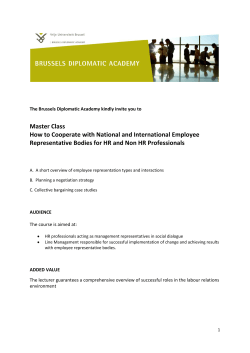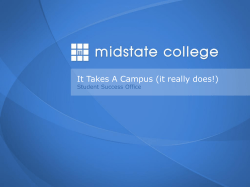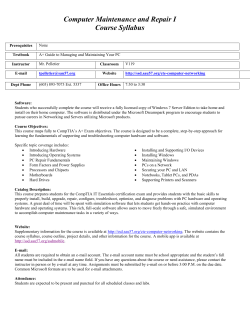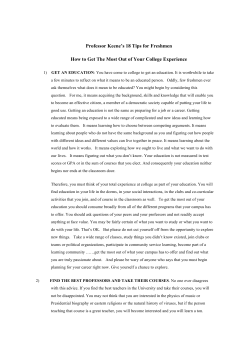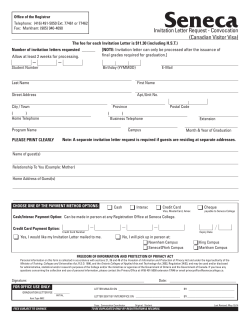
s t n
Table of Contents Back ground of FIDSE--------------------------------------------------------------------------------------------1 Development planning methodology------------------------------------.----------.-----------------------3 Objectives of development planning process------------------------------------------------------------3 Policy profit Review-------------------------------------------------------------------..-------------------------4 Powers & duties of FIDSE------------------------------------------------------------------------------------…5 Vision---------------------------------------------------------------------------------------------------------------.6 Mission-------------------------------------------------------------------------------------------------------------6 Values-----------------------------------------------------------------------------------------------------------.--6 Goals-------------------------------------------------------------------------------------------------------8 SWOT Analysis------------------------------------------------------------------------------------------9 Activity plan of Furra College----------------------------------------------------.---.--------------11 Action plan----------------------------------------------------------------------------------------------17 Admission Development plan-----------------------------------------.----------------------------21 Academic staff development plan projections-------------------------------------------------22 Supportive staff development plan projections-----------------------------------------------24 1 FIDSE 2006-2009 E.C Development plan Background The Furra Institute of Development Studies is a participatory Development training institute officially opened in 1997 Gregorian calendar by Ireland Aid area based development support and Sidama Development program dedicated for the development of the area. Physically the Institute is located in Southern Ethiopia, Sidama zone Yirgalem town 317 kms from Addis Ababa, on the edge of East Africa Rift valley. It is located along the main international road from Addis Ababa to Nairobi- Kenya. The weather of Yirgalem is cool & convenient to conduct trainings smoothly. The aim of the institute is building the capacity of those involved in development process of the country. It is obvious that, in order to alleviate poverty improving “Human capability” is crucial. Investing in people increases the productivity of the society. No one names an illiterate country, which is prosperous by its gift of natural resources. Capacity building is inevitable for the development of any community. In the context of the Southern region, Specifically Sidama Zone human capital development is crucial, since the carrying capacity of the land is diminishing because of fast population pressure and less environmental awareness. The land is being degraded; shortage of off-farm income and lack of basic skills has made the community poor and unproductive. Hence, capacity building is central to the ongoing development process of the country. When we look to the come out of Furrra Institute of Development Studies, Ireland Aid Area Based Development Initiative becomes great landmark. Ireland Aid area based program realized from 1995 a from human capacity assessment of the area that the capacity to implement planned projects and programs as well as awareness of participatory development approach of the zonal & Woreda government institutions found to be inadequate. Therefore, Ireland Aid area based program enforced to give short-term training to Woreda and zonal officials to fill the capacity gap in order to implement the planned projects efficiently. For 2 the first time, management skill training and the community development approach provided for Woreda and zonal government officials and staff. Ireland Aid area based program believes on the process through which people can better shape the forces that affect their lives. Eventually, the training activities first began in the area of management. These training took place in local hotels & proved to be very expensive and an inconvenient environment for training was experienced. To minimize the expenses Dale Woreda council offered Furra center to be used as a training venue by the request of Sidama Development program, the zonal council handed over the institute/center to Sidama Development Corporation (SDC) non-profit legal organization dedicated to grass roots development in the area for managerial purpose. Furra institute of Development Studies launched huge short- term participatory development training programs in courses such as participatory development studies- participatory rural appraisal (PRA), community organizing & leadership Training for Action (COLTA), Management, Gender and development, Natural resource Management, Micro finance, and Basic Accounting since 1995 and recently launched training program in information communication Technology. In the mean time, the solid experience gained by the institute in area of participatory adult training facilitated/ paved the road opening of furra college integral wing of the institute in 2001/2002 academic year in 12+ diploma program. The value of the college is quality training and increasing the middle level qualified human power to facilitate the process of development. The college program operates under the administration of the institute without altering the previously existing services and the mission of the furra institute of development studies. The withdrawal of Ireland Aid area based program before the planned period has negatively affected the financial position of the institute. Then after, it was a must to look for other additional income sources & diversify the activities of the institute. Therefore, the institute launched diploma program (12+2) in business in 2001/2002 Academic year at yirgalem & Awassa campuses as a part of the institute legally securing the investment license from Trade and industry and industry and investment authority Addis Ababa. 3 The institute was accountable to the SDC up to June 2002. Later from July 2004 onwards, it has been reorganized as a share company and owned by the FIDSE. Currently the institute receives directives from Board of Directors and technical evaluation is done by Technical and Vocational commission in the regional level. In order the institute to provide all services efficiently and competently compared to similar institutions, working on human capital development and research, it is a must the institute to supported materially and financially to fill the gap of financial limitations to expand expected services. Such the human capital development is an ending process as well as a crucial agenda to achieve the minimum development goals. Development Plan Planning Methodology The development planning of the Institute/ college has been question of the managing staff. The managing team of the institute planned to prepare the development plan in participatory manner by involving different concerned institutions, individuals, researchers, and academicians, customers including sidama administrative council members to determine/ plan the future direction of the Institute/ college. Finally, the draft development plan presented for the Board of the institute/ college for approval. The Board of the institute/ college after assessing in detail has approved the development plan and being based on this document all divisions under FIDSE prepared their action plans. Objective of the development planning process. Development plan is long- term plan action, which takes a board overview of current activities and future activities. The development planning incorporates other short or medium term types of planning using these to contribute to the overall plan. The overall objectives of development planning are. x T clearly spell out future university college’s needs challenges and opportunities x To prepare workable action plan and streamline the on the basis of strategic plan. 4 x The development plan is advantageous in a sense that it brings information and knowledge about the content of the plan and through this commitment towards achieving its objects. x It brings the people involved together with a common purpose. x The process involves consultation and participation, and through this it encourage the gives ownership of the plan and develops a holistic approach to meet the needs of the society. The development action plan and annual plan focus, not only on processes, but also on out puts, which are measured in quality, quality, length of the time and cost. Development action plan focus on achievable goals and clearly identifies accountability. Moreover, to accomplish its objects the institute also needs to revise plans and make improvements to achieve its objectives. Policy profile Review During early period of Ethiopian education development and in recent pre dengue regimedecades the development of education was very much stagnant. For this one could be the rule of the regime that do not allow others to participate and contribute in education. Another could be the existing class difference that reflects the notion of education to be for the royal family. Besides during dergue regime the central bureaucracies do not allow the private organizations to invest in TVET and tertiary level education. However, currently the EPRDF government, according to the proclamation no 351/2003, has issued a policy, with authority and scope of application that enable higher education to produce quality and skilled manpower adequately to meet the needs of the country. The policy and proclamation appreciates the research conducted by the higher education shall be problem solving and directed towards the utilization of potential resources of the country. The proclamation also provides by law the academic freedom and accountability of higher education institution as well as their administration in order to promote their contribution in expanding education and conducting research. 5 Therefore the new education policy and investment, unlike the policies of the late socialist govern met recognizes and encourages private investment in all levels of education. Using this opportunity, Furra College secured an invest license to conduct higher education training, short- term training & consultancy services. Powers & Duties of FIDSE FIDSE shall enjoy academic freedom and shall have the following granted powers and duties. 1. To design and implement training programs based on standard issued for higher education 2. To adjust students in accordance with standards determined for the higher education 3. To confer academic certificates and diplomas and prizes as may be appropriate 4. To organize and conduct seminars, workshops, symposia and the like particularly focusing on the needs of the region as well as bordering regions 5. To establish links with local and foreign institutions having similar objectives 6. To prepare, publish, and distribute academic journals brochures, newsletters that can benefit the users and strengthen the development process 7. To initiate, conduct, promote, and support research activities 8. To promote staff development and ensure the improvement of professional quality 9. To create conditions necessary to generate its own income 10. To own property, to enter into contracts and to sue and be sued in its name 11. To take all measures necessary for its expansion and strengthening its capacity and to perform other activities conducive to the attainment of its objectives 12. To conduct impact assessment on an ongoing basis and initiate new programs based on the needs assessments; 13. To share experiences from and bring others to work in the college organization with the purpose of achieving short- term training in areas of business and development 14. To provide consultancy and training services; entering the market, charging appropriate fees 15. Develop programs of study and provide higher education 16. \undertakes study and research and disseminate the findings as may be necessary 6 17. Provide appropriate service to the society 18. Provide support for primary and secondary education institution 19. To carry out such other activities as are necessary for the attainment of its objectives VISION To see FIDSE become one of the leading higher academic institutions at national and international level with multi-disciplinary academic and participatory development programs, research & consultancy, and academic excellence that produces competent and self confident graduates that can energetically participate in the development of the society. MISSION 1. To offer high quality education/ and training in formal and non formal areas at defferent levels with emphasis up on those of special interest to the country and its citizen 2. To engage in research and consultancy activities that can support the development endeavors of the country. 3. To produce competent, creative, confident, skilled and responsible human power who contribute efficiently and effectively to the development of the society. VALUES The following are FIDSE’s core values; - Quality education - Modern facilities and equipment - Quality trainers /staff/ - Strong international links - Customer centered - Remain aware of grassroots dev’t issues - Participatory learning environment - Gender sensitive - Provision of diversified services - Employee centered - efficiency - Commitment - Responsibility 7 - Loyalty - Transparency - Action oriented - academic excellence - Accountability - Integrity - Academic freedom - Conservation - Norms - Team work 8 Goals 1. Expanding formal and non- formal training in way it satisfies the needs and inquiry of the nation 2. Producing trained and skilled meddle level technicians who can successfully contribute to the development process of the country 3. Designing the curriculum that focus on poverty alleviation in current context 4. Improving the quality of education 5. Increasing the number of students’ enrollment in all campuses. Goals (Input) 1. Increasing the number of students’ enrollment in all Departments 2. Avail the necessary educational material, tools and equipments 3. Prepare reasonable accommodation for College operations 4. Launch additional expansion programs to develop the College 5. Enhance quality training in the College 6. Recruiting and maintaining the necessary Human resources 7. Utilizing the institutional inputs at the full capacity 8. Increase short-term training in type and number 9. Continuing in research and development endeavors than ever before 10. Construction and Civil works at Yirgalem and Hawassa campuses 11. Developing more short- term training and other formal training modules 12. Increasing internal and external links Goals (Throughput) 1. Conducting in –service training and Development Human Resources of the college 2. Organizing different Committees to reinforce Educational development 3. Developing different schemes to maintain and promote Human Resources 4. Monitoring and Implementation of the whole process 5. Enhance quality training in the college 6. Utilize institutional through puts at the full capacity 9 7. Adapting institutionalization process 8. Develop information communication lines 9. Implementing outcome based performance management systems Goals (Output) 1. Producing trained and skilled meddle level technicians who can successfully contribute to the development process of the country 2. Increased efficiency/ quality service provision for the beneficiaries 3. Increased financial Cash inflow targets 4. Increased Staff commitment 5. Maintaining overall academic excellence. SWOT ANALYSIS 1. Assessment of Furra College STRENGTHS x Distinctive competence x Efficiency x Skilled work force x Own building and accommodation x Committed work force x Good image and reputation x Provision of quality education x Reasonable tuition fee x Participatory learning approach x Close follow up of Board members x Gender sensitivity policy of the college x Community based development, training, and research activities x Responsible and accountable staff 10 WEAKNESSES x Shortage of educational resources x Lack of innovation x Poor research activities and development programs x Weak communication channel /internet x Low employee morale x High staff turn over x Low financial status x Poor promotional work x Weak external link x Location disadvantage/Yirgalem campus/ x Poor admission capacity x Inadequate advisory service x Poor income generation strategy OPPORTUNITIES x Encouraging investment policy environment in education and training x Possible new markets x Good civil service reform program x Government attention in capacity building areas x Appropriate location in view of potential customers x Adequate and facilitated infrastructure x Conducive weather condition x Higher education demand by the community x Positive global attention in capacity building x New settlement and urban development 11 THREATS x High competition (other similar colleges , distance education, government universities and colleges) x Relative remoteness /Yirgalem campus/ x Low standard of living x Poor socio- economic condition x Shortage of experienced and skilled human power on the market x Poor employment opportunity Activity Plan of Furra College (2006 E.C -2009 E.C) In the following sections. The four years operational plan will be presented for Furra College in terms of how it will build its organizational capacity, how it will develop necessary expertise, what are the tasks at hand, and how it will expand and launch new training programs. Strategic issues, Objectives and strategies In the coming four years Furra College have the following Strategic issues, Objectives and strategies Issues -I Limited opportunities of higher education on different fields of studies in response to the needs of the society General Objective: Opening degree program in 12 fields of studies Specific Objectives: To open degree program in science and technology, Business and Economics, Development Studies, faculty at Yirgalem, Industrial Technology and development studies and Hawassa campus from 2006 E.C to 2009 E.C. 12 Strategies Providing reasonable tuition fees that consider the living standards of the community Strong link with Go’s and NGO’S Looking for sponsorship o Communicating with host organizations Strong promotional work Adopting different admission programs Arranging tutorial classes Commitment for quality education and academic excellence Issues II Limited number of applicants in the college that hinders from working in full capacity General Objectives: Admitting 4975 number of the studies from 2006 E.C to 2009 E.C AYE. Specific Objectives: Strong promotional work Adopting different admission programs Providing credit and discount facilities Providing reasonable tuition fees that consider the living standard of the community Strong link with GO’s and NGO’s Looking for sponsorship 13 Issues -III Lack of space and facilities to accommodate large number of new applicants General Objectives: Expanding the physical status (civil works) of the college. Specific Objective: To expand the physical status (civil works) of the college I. Construct 3 blocks with 9 class rooms and 1 administration building with 4 offices in Hawassa industrial & Technology & development studies campus. II. Construct additional 1 block with 3 class rooms in Yirgalem campus. Strategies Borrowing funds from the blank Using local resources Using appropriate bidding strategies for construction and materials purchase Diversifying income generating activities Coordinating effectively all physical and human resources Issues IV Limited number of academic professionals and supporting staff General Objective Increasing the number of academic staff from 2006 E.C to 2009 E.C AYE Specific Objective Recruiting 19 academic and 10 supportive staff for Yirgalem: 18 academic and 2 supportive staff for Hawassa campus, and 21 academic and 29 supportive staff for Hawassa industrial & Technology & development studies campus. 14 Strategies Contacting educational institutions for talent search Attractive recruitment and employment policy Staff development policy Focus on professionalism Looking for multi- disciplinary and experienced staff Issue V: Shortage of necessary equipments and materials General Objectives: Equipping the college with necessary equipments and materials from 2006 E.C to 200 9 E.C AYE. Specific Objective: To avail the college with necessary equipment and material with an outlay of __12 million ETB_______. Strategies Organizing funds from different sources Finding donating organizations Borrowing money from financial institutions Soliciting reliable supply sources Strong link with GO’S and NGO’s Looking for sponsorship Communicating with host organizations 15 Issue VI. Inadequate need assessment, research and impact assessment activities General Objective: Conducting need assessment, research and impact assessment from 2006 E.C to 2009 E.C. AYE. Specific Objectives: Conduct 4 need assessment surveys, 4 market research for launching new program and 4 Tracer study Strategies To conduct need assessment and research. Using own resources in conducting need assessment Being efficient in resources utilization Contacting former students Contacting GO’s and NGO’s as primary sources to identify needs Contacting central statistical authority to identify human resources demands Issues VII: Inadequate staff development and training activities General Objectives: Promoting efficiency and effectiveness of the college’s management & other staff’s from 2006 E.C to 2009 E.C AYE. Specific Objective I:Providing in service training for college’s management & other staff’s Specific Objective II: Giving Higher education opportunity for college’s management & other staff’s 16 Strategies Applying all the provisions of the college’s legislation x Highly decentralized organizational structure x Continuous workshops on educational management x Clear and participatory policies x Team- based control and monitoring x Selecting merit based performance criteria x Making contractual/ bilateral agreement with Hawassa University x Making relationship with Sidama Zone Education Department and Sidama Zone Civil service office to get scholar ship opportunity x Binding agreement with instructors for post study service. x Contacting GO’s and NGO’s Issue IX: Inadequate research and consultancy activities General Objective: Conducting research and consultancy SPEFIC OBJECTIVE Conducting research and consultancy at the grassroots level from 2006 E.C to 2009 E.C AYE. Strategies Creating link research and consultancy institutions Creating community awareness towards action research Encourage the staff to involve in research activities Organizing workshops on modern research techniques Getting up to date research magazines though prescription Identifying model community sites for action research Disseminating research result to the concerned bodies Assessing the impact of the research outp 17 ACTION PLAN No Objective DETAILED ACTI RESPONSIBLE BODY 1 Opening degree program 1-In Yirgalem Campus in 13 fields of studies TIME FRAME 2006 2007 Managing director Academic Council Campuses Deans, V/deans, department h e ad s " x Gender & Development x Development Management x Accounting and Finance x Business Management x Co-operative Accounting x ICT x Community Development x Construction technology & " " Management 2.In Hawassa Gudumale " Campus x Business Management x Gender & Development x Development management x Accounting &Finance 18 2008 x x Survey & Mapping x ICT x Community Dev’t x Design & Drafting x Cooperative accounting " " " Environment & Development. 3-In industrial Technology & " dev’t Studies campus x ICT x Development management x Accounting &Finance x Community Development x Community development x Survey & mapping x Gender & development x Drafting and Design " x " x x " x Construction Management x Bio –Technology x Tourism, Culture & development " 2 Admitting 4,725 number Strong promotion (TV, radio, of the students for sticker, agenda, calendar) degree programs Adopting different admission x Promotion & publication office x Campuses Dean criteria 19 3 Expand the physical I. Construct 4 blocks with class status (civil works) of the rooms, One general library, 2 college Toilet rooms with double FIDSE directors faces and 1 adm. Building with 4 offices in Hawassa industrial Technology & dev’t studies campus II. Construct additional 1 block FIDS directors with 4 class rooms in Yirgalem campus. 4 5 Increasing the number of Recruitment, Selection, FIDSE adm. academic staff induction and orientation Equipping the college Need assessment, acquisition FIDSE adm. Conducting need Conduct 4 need assessment Research & assessment, research survey, 4 market research for Consultancy unit and impact assessment. launching new program and 4 FIDSE directors FIDSE directors with necessary equipments and mat e rials 6 Tracer study 7 Promoting efficiency and Providing 8 in-service training effectiveness of the for college’s mgt & other staff’s college’s management & Giving Higher education other staff’s. opportunity for four college’s mgt & 4 Academic staff’s 8 Creating additional Need assessment, short-term Short-term training income generating training, and Consultancy schemes Strong promotion section. Promotion division 20 FIDSE adm 9 Conducting research and Conducting research and Research & consultancy consultancy at the grassroots Consultancy unit level 21 Admission Development plan No Campus Department News Student 2006 1 Yirgalem Campus 2007 2008 200 Gendar And Development 50 100 Development Management 50 50 Accounting and Finance 100 150 Business Management 100 150 Total 1 300 450 Co-operative Management 75 Community Development 75 ICT 60 Total 2 210 Construction technology Co-operative Accounting Hotel Management Total 3 Total 1+2+3=GT1 2 Hawassa campus 300 660 Business management 100 150 200 Gender & Development 50 75 100 Development management 50 75 100 Accounting &Finance 100 150 200 Total 1 300 450 600 Design & Drafting 25 50 Cooperative accounting 25 50 Total2 50 100 Survey and Mapping 25 22 ICT 25 Community Development 50 Total3 100 Bio- Technology Environment and Development T o t al 4 Total 1+2+3+4=G2 3 300 500 800 Industrial ICT Technology dev’t Development Management Studies campus Accounting & Finance 75 Community development 75 Survey & mapping 75 Gender & development 75 Drafting& Design 50 Tourism, Culture & dev’t studies 50 60 100 Construction technology & Mgt Environment & Development Total3 Grant Total 400 400 950 23 1425 2 Campus Department Technica BA/BSC MA/MS Ph D Technica BA/BSC MA/MS Ph D Technica 1 Yirgalem campus Applied computer science - - 1 - - - - - - - Business Management - - 1 - - - - 1 - - Survey & Mapping - - - - - 1 1 - - - Gender & Dev’t - - - - - - 1 1 - - Bio technology - - - - - - - - 1 1 Co-operative Accounting - - - - - - - - - - Construction technology - - - - - - - - - - Accounting & finance - - - - - - - - - - Hawassa Gudumale Business Management - - 1 - - - - - - - campus Gender & Development - - - - - - - - - - Development - - - - - - - - - - Accounting - - 1 - - - - 1 - - Survey & Mapping - - - - 1 1 1 - - - Gender & Dev’t - - - - - - 1 1 - - Design & Drafting - - - - - - - - - - Cooperative accounting - - - - - - - - - - Bio- technology - - - - - - - - - - Mgt, Accounting & - - - - - - - - - - 2 2006 2007 2008 BA/BSC No Management finance 3 Industrial Technology ICT 1 1 1 - - - - - - - and dev’t Studies Development - - 1 1 - - - - - - campus management 24 Community development - - - - - - 1 - - - Survey & mapping - - - - 1 1 1 - - - Gender & development - - - - - - 1 1 - - Drafting & Design - - - - - - - - - 1 Tourism, culture & dev’t - - - - - - - - - 1 - - - - - - - - - - - - - - - - - - - - studies Construction technology & Mgt Environment & Development 25 Supportive Staff development Plan Projections BA/BSC MA/MSC 10-12 D ip BA/BSC MA/MSC 10-12 D ip 2 - - - - - - - - - - - - - - - - - - - - - - - - 2 - - - - - - - - - - - - - 2 - - - - - - - - - - - - Accountant - - 1 - - - - - - - 1 - - - 6 Personnel/adm - - 1 - - - - - - - - - - - 7 Li b r a r i a n - 4 - - - - - - - - 1 - - - 8 Lib. Ass - 2 - - - - - - - - - - - - 9 Janitor 4 - - - - - - - - - - - - 10 Duplicator - 2 - - - - - - - - - - - - 11 Ass. tech - 2 - - - - - - - - - - - - 12 Store clerk - 2 - - - - 1 - - - - - - - 13 Ass. Regist - 2 - - - - 1 - - - - - - - 14 Ass.ICT - 2 - - - - - - - - - - - - 15 P lan & P ro g - - 2 - - - - - - - - - - - 16 Vocational Co - - 3 - - - - - - - - - - - 10-12 D ip 2008 10-12 2007 MA/MSC 2006 BA/BSC 2005 D ip T it le 1 Typist - 2 Guard 4 3 Messenger - 4 Casher 5 T o t al 8 22 7 2 3 26
© Copyright 2025
